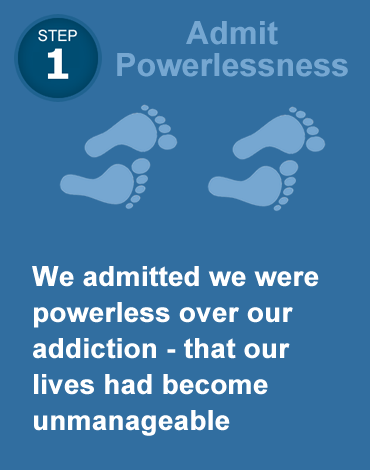We admitted we were powerless over our addiction – that our lives had become unmanageable
The fact is that most alcoholics, for reasons yet obscure, have lost the power of choice in drink. Our so-called willpower becomes practically non-existent. We are unable, at certain times, to bring into our consciousness with sufficient force the memory of the suffering and humiliation of even a week or a month ago. We are without defense against the first drink (or drug).
– Big Book of Alcoholics Anonymous, page 24
I believe the delusion of control and power finally breaks down at the point where we are not able to alleviate the stress and our pain through any effort in our repertoire. Evidently what we all want is happiness, yet with all we have accomplished or acquired with our attempts to be in control, many of us reach a place at which we not only cannot control our happiness – even with an addictive substance or behavior – but we cannot control our pain and stress, which has reached an agonizing level. By this time the family may have left; the job may be gone; or one’s health may have been destroyed.
But we don’t have to go this far down. We can see the patterns of powerlessness and go for help. When we begin to realize how we act and feel when no one is around, or in our car alone in traffic, or in line in a store, or when we listen to a political commentator, or in our most intimate relationships in our homes or in our beds, we can look around in our lives and see other signs of powerlessness and unmanageability. In the end it is usually the pain of our compulsions, addictions, and denial and the resulting strained or broken relationships that drive us to the stark awareness of our powerlessness. Unfortunately it may take a tragedy or crisis to break through our delusion of power – a divorce, a family member’s addiction, a runaway child, a terminal illness, a bankruptcy, a death.
– A Hunger for Healing, p. 25

